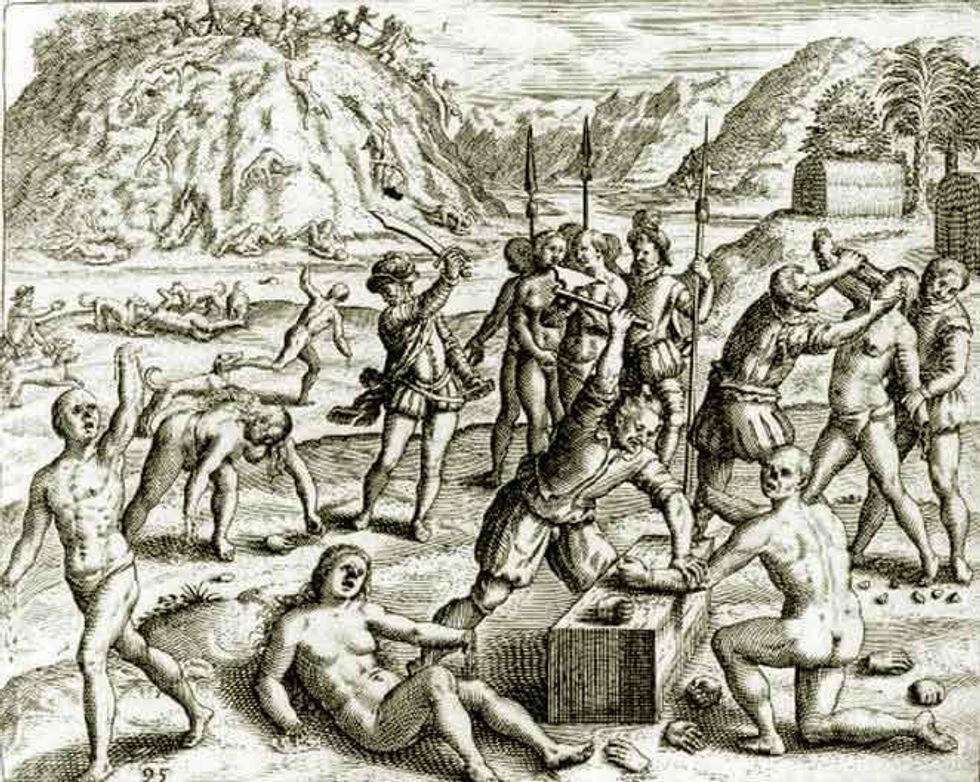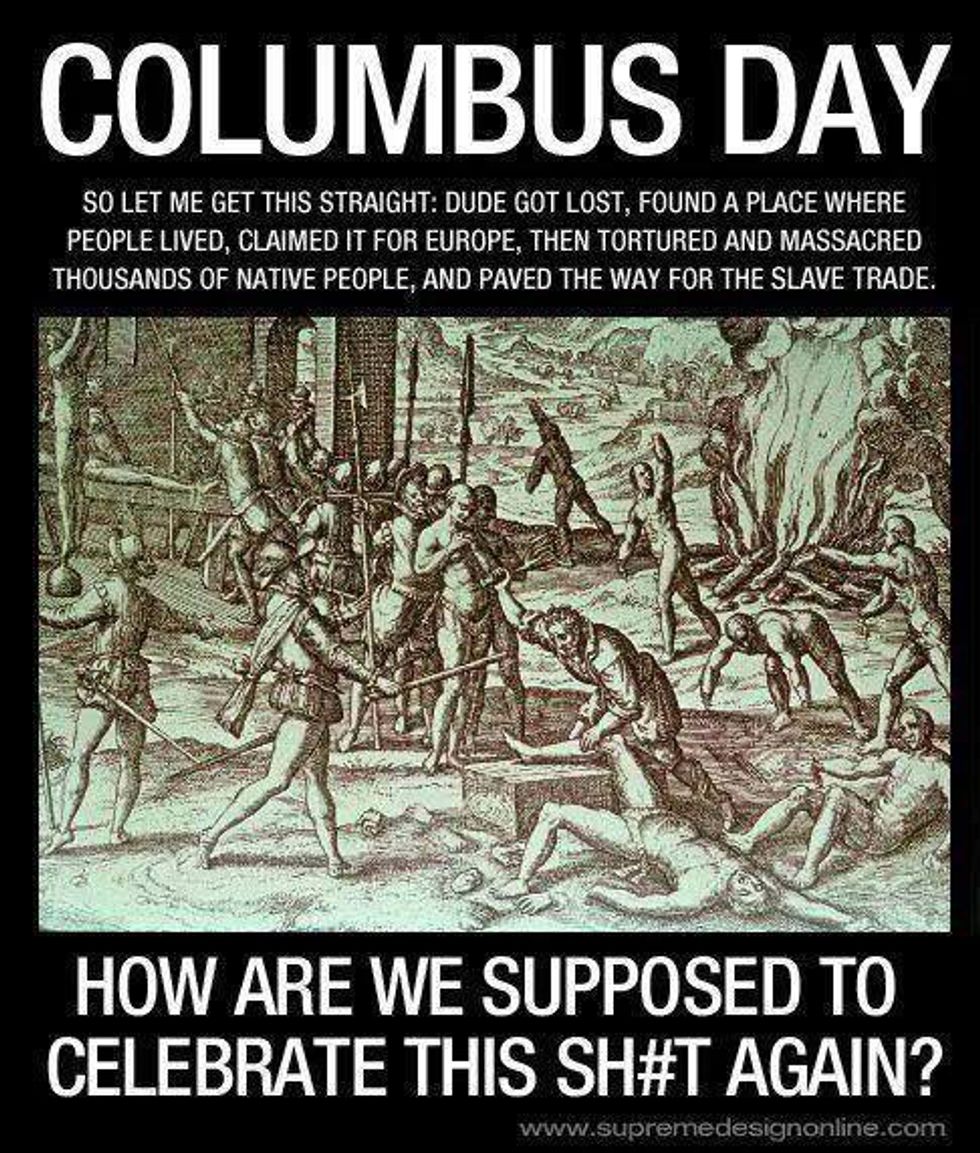Whenever I think about Christopher Columbus, I remember a song I was taught in elementary school:
“Oh Columbus, oh Columbus, he sailed the ocean blue;
He discovered America in 1492!”
I remember singing the song gleefully with my classmates, utterly unaware of the horrors that this man I was supposed to glorify imposed upon the indigenous people that I myself actually descended from (My grandfather, as a Puerto Rican, was half Taino --- a native people that resided in the Greater Antilles, various islands in the Caribbean). I had no idea that the great Christopher Columbus indeed had not even discovered America, but rather had colonized the islands off of its southeastern coast at the expense of the native people. In fact, Columbus never even landed in mainland America. He spent his voyages quite literally torturing the people of what is now known as the Bahamas, the Dominican Republic, and Haiti.
Another lesser known fact about Columbus was that his expeditions were not of the best intentions, even from the start. He was entitled, by Queen Isabella and King Ferdinand of Spain, to 10% of the profits that he brought back with him from his journey. With this in mind, Columbus set out not in pursuit of scientific, geographic, or cultural discovery, but in pursuit of profit. Columbus enslaved the people of what he dubbed Hispaniola, despite their good nature and generosity. He wrote of them in his journal saying, "with fifty men they can all be subjugated and made to do what is required of them." He then proceeded to send slaves back to Spain by the hundreds to be bought and sold, many dying at sea.
In addition, he forced these people to mine for the gold he so desired, and when they would not comply he would have various parts of their bodies --- ears, hands, even heads --- cut off. Native women were supplied to Columbus’ men as sex slaves, many just young girls. Rape was completely tolerated under Columbus, and stripping the women of their sexual control became sport amongst the voyagers. Many witnesses of the barbaric persecutions committed by Columbus and his men wrote that they could not believe their eyes when they saw the murder of infants, the beheading, boiling, and burning of people, for no good reason at all.
It is important to note that indigenous people are still oppressed and marginalized to this day in our country. The 326 reservations set aside for Native Americans across the U.S. are also the homes to some of the highest rates of poverty, unemployment, drug/alcohol addiction, and crime that our nation has to offer. Celebrating a man that in some senses marks the beginning of this mistreatment is frankly a spit in the face of these already suffering people. That being said, it is no wonder that this Columbus Day, 10 cities have already taken the initiative to recognize the atrocities this man inflicted and declared this October 12 “Indigenous People’s Day.” In the words of Seattle’s city council member Kshama Sawant, “Learning about the history of Columbus and transforming this day into a celebration of indigenous people and a celebration of social justice... allows us to make a connection between this painful history and the ongoing marginalization, discrimination, and poverty that indigenous communities face to this day.”


























